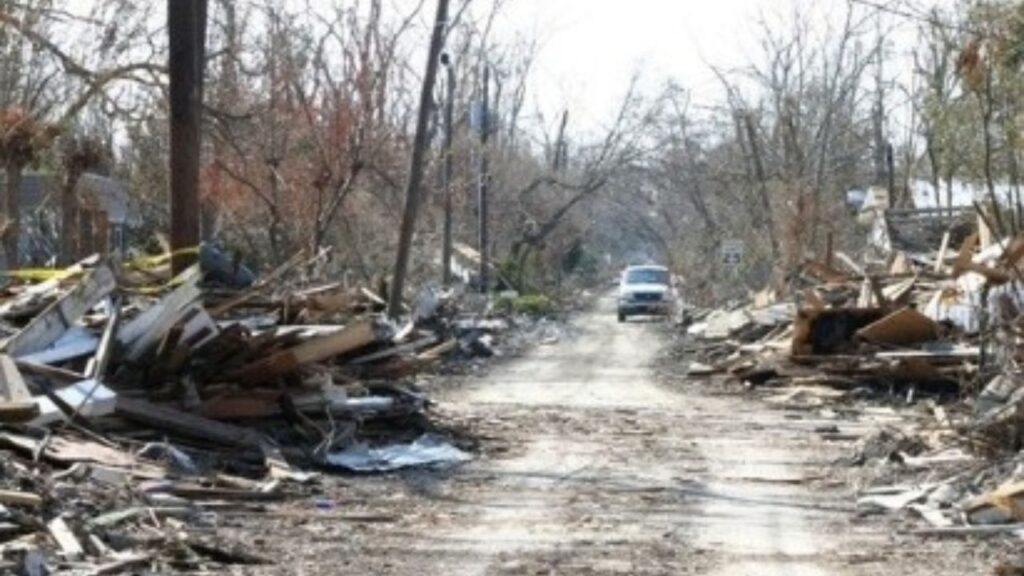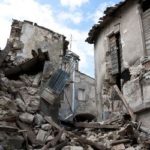7 ways people of faith can help Hurricane Helene relief

In the aftermath of Hurricane Helene, countless families are facing the daunting task of rebuilding their lives. During such times of crisis, people of faith have a unique opportunity to make a difference.
1. Pray for victims and responders
One of the most immediate and powerful ways people of faith can help is through prayer. Prayer provides spiritual support not only for those directly affected by the hurricane but also for the first responders, relief workers, and volunteers. Faith communities can organize prayer gatherings, both in person and online, to uplift those who have lost loved ones, homes, or livelihoods. Specific prayers for healing, resilience, and the strength to rebuild can bring hope and comfort to those facing the aftermath of the disaster.
2. Donate to relief organizations
Many faith-based organizations are on the front lines of hurricane relief efforts, providing food, shelter, and other critical resources. Groups such as Samaritan’s Purse, Catholic Charities USA, Islamic Relief USA, and The Salvation Army have mobilized to help those impacted by Hurricane Helene.
In addition to monetary donations, some groups accept in-kind donations such as non-perishable food, clothing, and hygiene products. It’s important to check with the organization for specific needs to ensure contributions are helpful and timely.
3. Volunteer your time
Many relief groups depend on volunteers to deliver aid and help communities recover after disasters. If you live near the affected areas or are willing to travel, you can volunteer your time to assist with cleanup efforts, distribute supplies, and provide meals to survivors. Organizations such as United Methodist Committee on Relief (UMCOR), Baptist Disaster Relief, and Lutheran Disaster Response welcome volunteers on their disaster response teams.
Even if you cannot physically be present, virtual volunteering options may be available. For example, you could help coordinate donation drives, manage online fundraising efforts, or provide remote administrative support to relief organizations.
4. Open your home or church as a shelter
For those living in nearby regions, offering temporary shelter to evacuees can make a significant impact. Churches, synagogues, mosques, and other faith institutions can open their doors to families who have been displaced by the hurricane. Similarly, individual families can offer their homes (using caution and wisdom) to those in need of a safe place to stay. Faith communities can also partner with organizations like the Red Cross to coordinate shelter services and ensure that evacuees have access to meals, beds, and other necessities.
5. Organize fundraisers and donation drives
People of faith can come together to organize fundraisers, donation drives, and community events to raise money for hurricane relief efforts. Whether through bake sales, benefit concerts, or online crowdfunding campaigns, every dollar raised makes a difference. Many faith groups, including churches and youth ministries, can partner with local businesses or schools to amplify their fundraising efforts.
Additionally, organizing a donation drive for essential items such as bottled water, blankets, toiletries, and cleaning supplies can provide immediate relief to those in need. Be sure to communicate with local relief organizations to ensure the items collected are those which are most needed.
6. Provide emotional and spiritual support
Natural disasters take a toll not just on people’s physical well-being but also on their emotional and spiritual health. People of faith can provide much-needed emotional and spiritual support to survivors. Faith leaders can offer counseling, pastoral care, and trauma support to help individuals process their grief and fear. Community members can also offer listening ears and a compassionate presence to those who need to share their stories.
In addition, faith groups can organize services of lament, healing, and hope to bring people together for mutual support and encouragement. These gatherings can help restore a sense of peace and remind survivors that they are not alone.
7. Advocate for long-term support and recovery
Beyond immediate relief, long-term recovery is crucial for communities affected by Hurricane Helene. People of faith can advocate for policies that support disaster recovery efforts, ensuring that resources continue to flow to those in need even after the initial emergency response has subsided.
Faith-based advocacy groups can work with local governments and organizations to address issues like affordable housing, mental health services, and job creation as communities rebuild.



